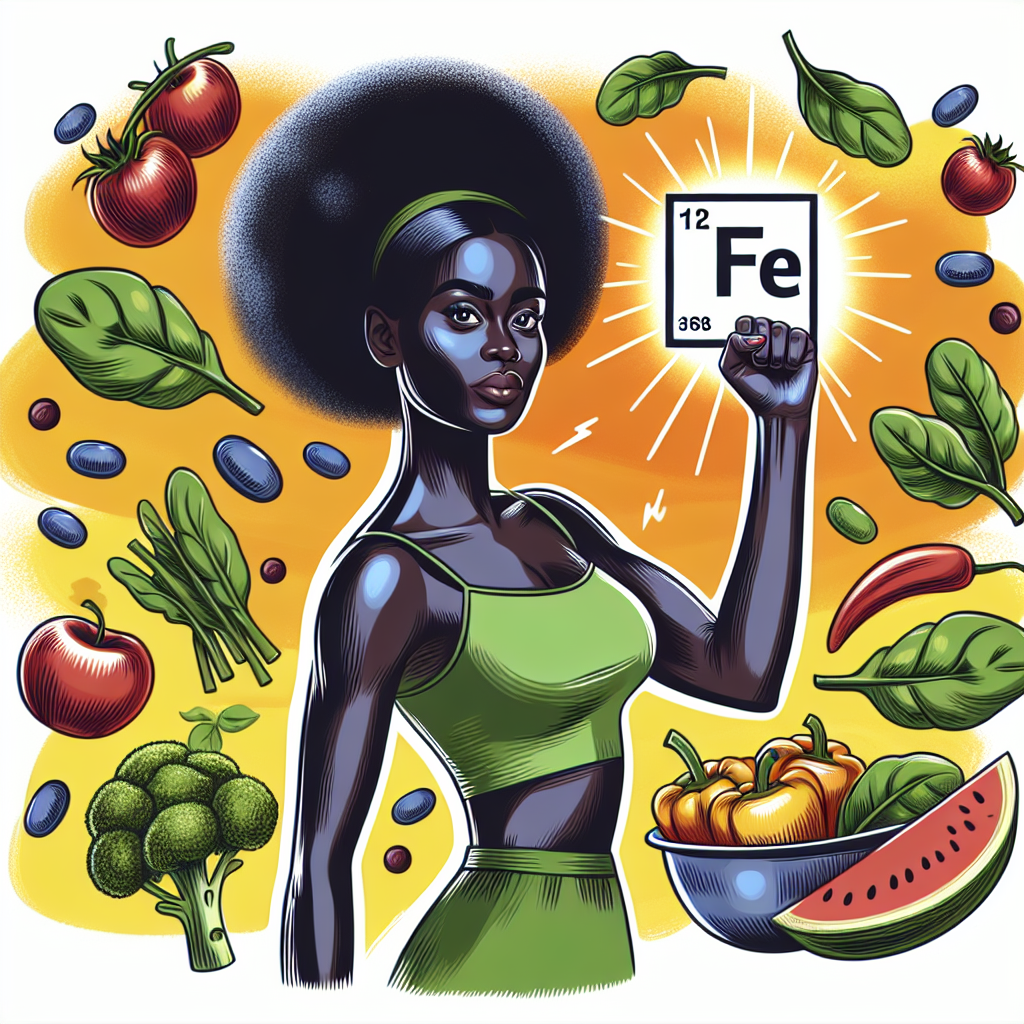
The Importance of Iron for Women’s Health
Iron is a vital nutrient that plays a crucial role in women’s health. Research indicates that iron is essential for oxygen transport in the blood, which supports energy levels and overall vitality (1). Women have unique iron needs due to menstruation, pregnancy, and other factors, making it important to understand the significance of maintaining adequate iron levels.
Iron Deficiency and Its Impact on Women
Iron deficiency is a common issue among women, particularly those of reproductive age. Studies show that iron deficiency can lead to anemia, which is characterized by fatigue, weakness, and impaired cognitive function (2). According to the World Health Organization, iron deficiency anemia affects approximately 30% of non-pregnant women worldwide (3). This highlights the importance of ensuring sufficient iron intake to prevent these health consequences.
Iron Requirements for Women Across Life Stages
Women’s iron needs vary throughout their lives. Research suggests that adolescent girls require around 15 mg of iron per day, while adult women need approximately 18 mg (4). During pregnancy, iron requirements increase to support the growing fetus and increased blood volume, with recommendations ranging from 27 to 30 mg per day (5). Postmenopausal women have lower iron needs, typically around 8 mg per day, as they no longer experience menstrual blood loss (6).
Sources of Iron in the Diet
Obtaining sufficient iron through the diet is essential for women’s health. Studies indicate that there are two main types of dietary iron: heme iron, found in animal products, and non-heme iron, found in plant-based foods (7). Heme iron is more easily absorbed by the body, with research showing that it has a bioavailability of around 15-35%, compared to 2-20% for non-heme iron (8). Good sources of heme iron include red meat, poultry, and seafood, while non-heme iron can be found in legumes, tofu, spinach, and fortified cereals (9).
Enhancing Iron Absorption
To maximize iron absorption, it is important to consider factors that can enhance or inhibit this process. Research suggests that consuming vitamin C-rich foods alongside iron-rich meals can significantly improve iron absorption (10). For example, a study found that drinking orange juice with a meal increased non-heme iron absorption by up to 67% (11). On the other hand, certain compounds like phytates and polyphenols, found in whole grains and tea, can inhibit iron absorption (12). By understanding these factors, women can optimize their iron intake and absorption.
Iron Supplementation and Its Role
In some cases, iron supplementation may be necessary to meet women’s iron needs. Studies indicate that iron supplements can be effective in treating iron deficiency and preventing anemia, particularly in pregnant women and those with heavy menstrual bleeding (13). However, it is important to consult with a healthcare professional before starting any supplementation regimen, as excessive iron intake can have adverse effects (14). A balanced approach that combines dietary sources and, if needed, appropriate supplementation can help women maintain optimal iron levels.
Iron and Cognitive Function
Emerging research suggests that iron plays a role in cognitive function and brain health. Studies have found associations between iron deficiency and impaired cognitive performance, including attention, memory, and learning (15). In a study of adolescent girls, those with iron deficiency showed lower scores on cognitive tests compared to their iron-sufficient counterparts (16). Ensuring adequate iron intake may be important for supporting optimal cognitive function in women throughout their lives.
Iron and Physical Performance
Iron is also crucial for physical performance and endurance. Research indicates that iron deficiency can lead to reduced exercise capacity and increased fatigue during physical activity (17). In a study of female athletes, those with iron deficiency had lower maximal oxygen uptake and poorer performance in endurance tests compared to those with normal iron levels (18). Maintaining optimal iron status can help women achieve their full potential in sports and physical activities.
Iron and Pregnancy Outcomes
Adequate iron intake is particularly important during pregnancy to support both maternal and fetal health. Studies show that iron deficiency during pregnancy is associated with an increased risk of preterm birth, low birth weight, and maternal anemia (19). A meta-analysis of randomized controlled trials found that iron supplementation during pregnancy reduced the risk of low birth weight by 19% and maternal anemia by 70% (20). Ensuring sufficient iron intake before and during pregnancy can help optimize outcomes for both mother and baby.
Monitoring Iron Status
Regular monitoring of iron status is important for women to maintain optimal health. Research suggests that blood tests, such as serum ferritin and hemoglobin levels, can help assess iron stores and detect deficiency (21). Women at higher risk of iron deficiency, such as those with heavy menstrual bleeding or following a vegetarian or vegan diet, may benefit from more frequent monitoring (22). By staying informed about their iron status, women can take proactive steps to address any deficiencies and maintain their overall well-being.
Takeaways
- Research indicates that iron is essential for oxygen transport, energy levels, and overall vitality in women.
- Iron deficiency is common among women and can lead to anemia, fatigue, and impaired cognitive function.
- Women’s iron needs vary across life stages, with increased requirements during pregnancy and menstruation.
- Both heme and non-heme iron sources are important, and vitamin C can enhance iron absorption.
- Iron supplementation may be necessary in some cases, but should be done under medical supervision.
- Adequate iron intake is associated with better cognitive function, physical performance, and pregnancy outcomes.
- Regular monitoring of iron status can help women maintain optimal health and address deficiencies.
Understanding the importance of iron and taking steps to maintain adequate levels is crucial for women’s health and well-being. By prioritizing iron-rich foods, considering factors that affect absorption, and seeking appropriate medical guidance, women can support their energy, cognitive function, and overall vitality throughout their lives.
SOURCES
CLICK HERE
- Iron and Women’s Health
- Iron Deficiency and Anemia in Women
- World Health Organization: Anaemia
- NIH: Iron Fact Sheet for Health Professionals
- Iron Requirements During Pregnancy
- Iron and Women’s Health
- Iron Deficiency and Anemia in Women
- Iron and Women’s Health
- NIH: Iron Fact Sheet for Health Professionals
- Iron Deficiency and Anemia in Women
- Iron and Women’s Health
- Iron Deficiency and Anemia in Women
- Iron Requirements During Pregnancy
- Iron and Women’s Health
- Iron Deficiency and Anemia in Women
- Iron and Women’s Health
- Iron Deficiency and Anemia in Women
- Iron and Women’s Health
- Iron Deficiency and Anemia in Women
- Iron Requirements During Pregnancy
- Iron and Women’s Health
- Iron Deficiency and Anemia in Women
Are you looking for articles on men’s health, wealth, and lifestyle?
We’re talking real, actionable advice that cuts through the noise. Whether it’s getting jacked, stacking cash, or leveling up your life. No fluff, just the good stuff to help you dominate in every area. We’re here to help you build the life you actually want.
